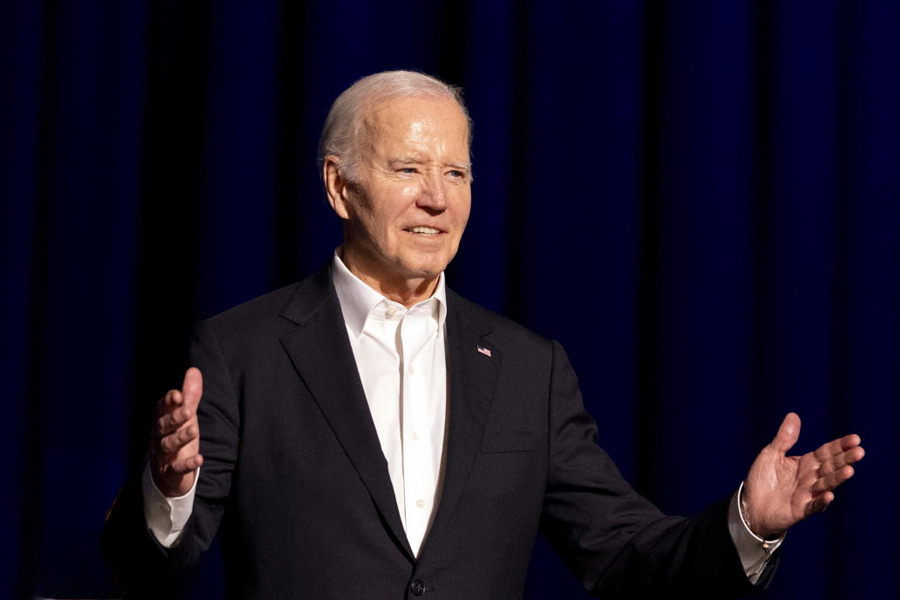With President Joe Biden under pressure to drop his bid for a second term, his party has been thrust into uncharted territory, struggling with a long list of risks and rewards as it faces the prospect of replacing Biden less than two months before the party convention.
No presumptive nominee has withdrawn this late in the process. But no party has faced the challenge the Democrats face today: a nominee dogged by doubts about his mental acuity; his ability to beat his rival, former President Donald Trump; and his fitness to serve another four years as President.
All of this has left Democrats struggling with critical questions: Is it easier to defeat Trump with or without Biden at the top of the ticket? Is it riskier to go with a new candidate or stick with a President who appears headed for defeat?
On Wednesday, a New York Times/Siena College poll found that Trump’s lead over Biden among likely voters had grown to 6 percentage points after the President’s halting debate performance last week.
The White House said the President was not dropping out, and he met with Democratic governors Wednesday. But he confided to an ally that he realized the next few days were crucial to saving his candidacy. To that end, Biden began preparing for his first sit-down interview since the debate, with George Stephanopoulos of ABC News, on Friday morning.
Several Democrats said that no matter the risks, a new nominee could bring a host of benefits to the party, particularly if Biden anointed a successor in an effort to assure a smooth transition and minimize intraparty battling.
A new-generation candidate could bring a jolt of energy to the ticket. It would give so-called double haters — voters unhappy with the rematch between an 81-year-old President and a 78-year-old former President — a possible new place to go this November. A new candidate would almost certainly benefit from a surge of campaign contributions, at least initially.
“If you are driving your car straight off a cliff, there are definitely risks to swerving right or left instead,” said Howard Wolfson, a Democratic consultant, who said he was doubtful that Biden could recover from the debate and go on to defeat Trump.
But other Democrats, including some advising Biden, said that changing horses now could lead to divisive and destructive feuding in the party. It could saddle the party with an untested candidate and a logistical nightmare that would only increase the prospects of a Trump victory this fall.
“A lot of things have to fall into place where it would take an act of God for it to go well,” said Stephanie Cutter, a Democratic consultant who also advises the Biden campaign but was not speaking on its behalf.
A late-stage Biden replacement would be less known and less experienced on the national stage than either Biden or Trump — obstacles that a newly selected nominee would have to quickly navigate.
Without a traditional primary, the candidates would be deprived of on-the-ground lessons in being a presidential candidate: drilled with questions from voters, learning the details of unfamiliar regional issues and of making alliances with key players of each state.










